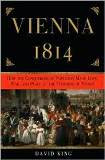Meet Olof Rudbeck, the man who announced that he had discovered Atlantis in Sweden. He then excavated what he thought was its capital, and opened a museum to house its artifacts. He also claimed to have discovered the Kingdom of Hades (near the Arctic Circle) – and then sent a “scientific expedition” to explore this shadowy Underworld. By the end of his thirty year quest, which soon became one of the more unusual in modern history, Rudbeck believed that almost every major figure of ancient Greek and Norse mythology had either visited Sweden, or had actually been Swedish.
Before this search became a lifelong obsession, Olof Rudbeck (1630-1702) had been the first Swede to make a major scientific contribution. He discovered and explained the lymphatic system – as a nineteen-year old. He was working largely on his own (his supervisor was too busy in the alchemy lab). Later, when Rudbeck became a professor, he built an anatomy theater for dissections, and founded a botanical garden, which developed into one of the larger ones on the continent. He discovered two comets, using instruments he built himself. Among many other things, Rudbeck started an early postal service in Sweden, operated fencing and dancing school, and harnessed the town river to power several machines in his factory. One of his favorite things to do was to make fireworks, and he would long enjoy lighting up the night sky with his home-made rockets.
All of this extraordinary talent was brought to his search for the fabled lost civilization, and the “discoveries” poured in at an alarming rate. By 1702, Rudbeck had compiled some 2,500 pages of evidence for his theories – I read every word of the four tomes of Old Swedish and Latin (including his surviving correspondence). Rudbeck's theories are perhaps the most rigorously-argued and wildly speculative theories of ancient history ever to be accepted, for a time, among many contemporaries. Rudbeck was admired at the court of Louis XIV, proposed as a member of the Royal Society in London, and celebrated in cafes, salons and academies across the continent. Avid readers were Leibniz, Montesquieu, and Isaac Newton. Rudbeck's Atlantica is, among other things, a veritable curiosity cabinet of the seventeenth century (From my book Finding Atlantis: A True Story of Genius, Madness, and an Extraordinary Quest for a Lost World).
skip to main |
skip to sidebar
An Eclectic Blend of History, Pop Culture and the World of Writing
About Me
- David King
- My books have been selected by the Book-of-the-Month Club, the History Book Club, and the Military Book Club, and translated into several languages, including most recently Chinese, Polish, Korean, and Russian. Before becoming a writer, I lived in Europe for six years and taught European history for several more at the University of Kentucky.
My Books
Most Popular Posts
Top Five Rudbeckia
Top Five Napoleonica
Napoleonic Links (Under Construction)
- Alex Mikaberidze Napoleonic Review
- Anne S.K. Brown Military Collection, Brown University Library
- Club Austerlitz
- Editions de la Revue Napoléon
- Fondation Napoléon
- Fortiter
- Institut Napoléon
- Institute on Napoleon and the French Revolution
- International Napoleonic Society
- J. David Markham Napoleonic History
- Juan Cole Napoleon's Egypt
- Les Amis de Talleyrand
- Les Médaillés de Sainte-Hélène
- Liberty, Equality, Fraternity
- Literature on the Age of Napoleon
- Musée de l'Armée
- Musée de la Maison Bonaparte
- Musée du Château de Malmaison
- Musée et Domaine nationaux du Château de Fontainebleau
- Musée Fesch Ajaccio
- Musée national de la Légion d'honneur
- Napoleon 1er
- Napoleon Bonaparte Internet Guide
- Napoleon Series
- Napoleonic Guide
- Napoleonic Historical Society
- Napoleonic Medals
- Napoleonic Wars Maps (United States Military Academy at West Point)
- Napoleonica
- Peter M. Holmes Fine Books
- Revue des études napoléoniennes (Gallica)
- Souvenir Napoléonien
- Souvenir Napoléonien de Monaco
- The Congress of Vienna (coming soon)
- Vienna 1814
- Waterloo Battlefield
- Waterloo Battlefield Tours
- Waterloo Campaign, Connoisseur’s Waterloo, Peninsular War 200th Anniversary, and Other Tours Ian Fletcher Battlefield Tours
Blogs and Other Resources (Under Construction)
- A Different Stripe
- AHA Blog
- American Historical Review
- Arts & Letters Daily
- Boing Boing
- Bookgasm
- Bookreporter
- Buzz, Balls, & Hype
- Critical Mass
- Det perfekta tomrummet
- Early Modern Notes
- Ed McClanahan
- Finding Atlantis
- Freakonomics
- H-France History
- HNN
- Kentucky Literary News
- Old Friends: Kentucky Facility Retired Thoroughbreds
- Paper Cuts
- Paul Collins
- Peter Englund
- PhiloBiblos
- Proceedings of the Athanasius Kircher Society
- Publishers Lunch
- Publishers Weekly
- Random House
- Renaissance Weblog
- rogueclassicism
- Short Stack
- Simple Grace
- Society for Military History
- Steamboats Are Ruining Everything
Blog Archive
-
▼
2007
(42)
-
▼
October
(14)
- Swedish? Well, of course
- My Library #1: Rudbeck's Atlantica (1679)
- Staggering Genius “Wise Enough To Do Good”
- What’s the Price of Being "the Rudest Man in Brita...
- My Library
- The Empire Strikes Back
- A Debut Author, A Self-Published Book, and A Seven...
- Kudos to the “Leather-Jacketed Pied Piper”
- The Book that Got Away
- Historian Signs Bat for Baseball Hall of Fame
- Two New Exciting History Titles
- Agent Zigzag
- From Olof Rudbeck to Quentin Tarantino
- Finding Atlantis Goes to China
-
▼
October
(14)

